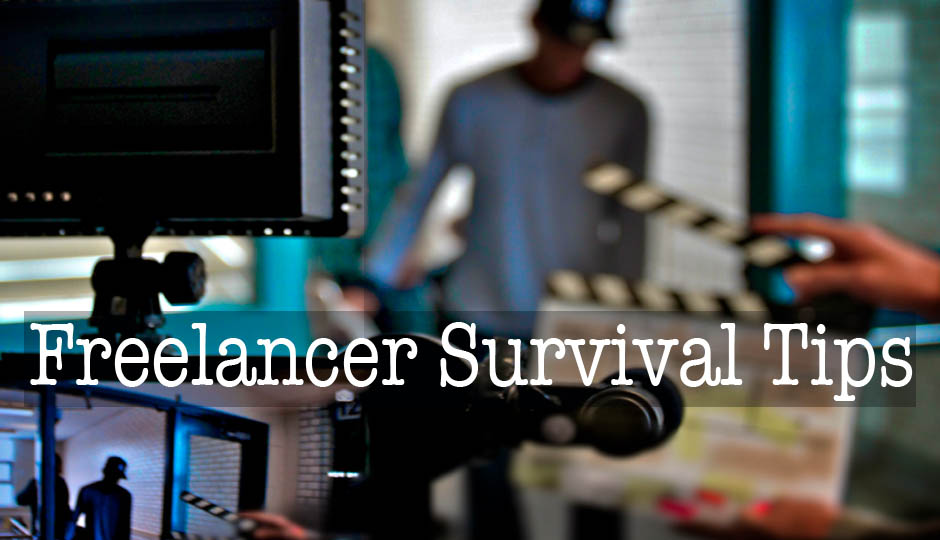Don’t make your first gig your last.
Starting out in this business is tough. Producers risk enough just making a movie, never mind taking chances on some newbie disrupting the set, causing delays, unknowingly insulting a crew member, or breaking something they shouldn’t be touching.
By Cyber Film School
UPDATED DECEMBER 11 2022,
Somehow, either through talent, persistence, connections, or all three, your lucky break comes along. How you do on this first gig may get you the next one.
If you follow a few common-sense tips, it’s not that hard to build a good reputation from the start.
1. Be Observant
There’s a very clear chain of command on set. Make sure you understand who reports to whom, how the departments are set up, exactly where you fit in and what is expected of you. Know your way around the set, and what are off-limits for your job description. Always ask permission when leaving the set. Listen up for the Assistant Director’s commands at all times, and quiet means absolute quiet. No footsteps, no whispering, no coughing, no sneezing. Silence. If you ruin a take, it’s game over.
2. Be Positive
Most producers agree that a positive attitude and willingness to learn is number one on this list. But when you’re overworked and doing a repetitive job it’s easy to get nervy, start complaining and get grouchy. Beat this temptation with a smile and an upbeat mood, and you win the respect of co-workers.
If you’re asked to do something extra or make unexpected changes to a plan, don’t argue. Stuff happens. Cooperate. Make the changes quickly and in a pleasant manner.
3. Be Attentive & Focused
Keep your focus on the job and always find something interesting about what you’re doing. Keep your phone in your pocket and off, don’t read non-work material. If you’re not busy for short periods, stay interested in what’s going on around you. Ask if you can help.
4. Be On Time
This applies to any job but in film, where budgets are high, every single moment is money. NEVER, EVER BE LATE!
In fact, to make a great first impression, be 15 minutes early and ask if there’s anything that needs to be done. This will get you noticed, especially in the morning when the crew is a bit grumpy and could use some help.
5. Don’t Be Controversial or Offensive
Don’t talk about politics, sex or religion – these topics can be highly controversial and can easily offend. Be extra careful with jokes. Not everyone shares your wit.
6. Be Careful About Networking On Set
Don’t network or promote yourself openly in front of others. This can give rise to jealousy and competitiveness. If you don’t have a crew list with phone numbers get one from the AD. Nothing wrong with following up with people once the project is over.
7. Dress Appropriately
Dress appropriately for your job. If you’re a PA, don’t show up on set wearing an Armani suit. Hygiene is also extremely important, especially on a crowded set. Show up clean – you never know when you’ll wind up with an unplanned 16-hour day.
8. Understand Your Job
Many entry-level positions ask you to take on the extra load from other jobs. For example, a Production Assistant on one project may be doing entirely different tasks on the next. The PA may be logging timecode, keeping continuity notes or driving around for stuff. Be prepared for anything. Find out what you’re supposed to be doing on this particular job. Once you know exactly what is required, make sure you are able to do it and can give it your 100%.
Owning the following is really helpful: a car, driver’s license, resume, and business cards.
9. Don’t Tell Anyone You Direct
Everyone is a would-be director with some project about to happen. On the set, it gives the impression you’re not interested in or value your current job.
10. Don’t Date Anyone On Set
Seriously. Ask someone on a date after the project wraps and not during. Did we say seriously? No explanation is needed on this one!
11. Don’t Run Off When It’s A Wrap
Here’s a way to make a terrific impression. When the day is over, don’t jump in your car and split. Stick around a bit and ask if anyone needs anything.
11. Arrive at Parties Late & Leave Early
Don’t avoid wrap parties or events but understand that a party is how film people network. Don’t go there to get wasted. Parties provide a great opportunity for you and your co-workers to get to know each other better.
12. Treat Everyone With Respect
This point provides long-term value rather than short. Treat everyone with respect and kindness be they actors, grips, directors or production assistants. You may not feel this respect in return immediately. You earn it over time. Treat people well and you’ll attract others of the same heart, and find yourself soon working on projects with friends who respect you as much as you do them.
13. Admit Mistakes Immediately
Did you screw up something important? Whatever you did wrong, admit it now! Believe it or not, people will respect you for having the strength to fess up. After all, you have the greatest excuse in the world – it’s your first film job and you’re learning!
14. Don’t Invoice On The Spot
The reality is that most producers don’t get paid right away. Expecting a pay cheque immediately makes you look green, desperate and unprofessional. Send producers an invoice and wait the standard 30 days, unless your due dates are agreed upon differently. If money hasn’t been received after the due date, a polite phone call usually gets results.
While talking about money, negotiate overtime rates and mileage upfront and remember to invoice anything extra work you do (even if the production company doesn’t wind up paying they’ll be aware of the additional work or resources you provided).
15. Bonus Tips: The Golden Rules of Life
- If you open it, close it.
- If you turn it on, turn it off.
- If you unlock it, lock it up.
- If you break it, admit it.
- If you can’t fix it, call in someone who can.
- If you borrow it, return it.
- If you value it, take care of it.
- If you make a mess, clean it up.
- If it belongs to someone else and you want to use it, get permission.
- If you don’t know how to operate it, leave it alone.
- If it’s none of your business, don’t ask questions.
- If it ain’t broke, don’t fix it.
- If it will brighten someone’s day, say it.
- If it will tarnish someone’s reputation, keep it to yourself.
- If you move it, put it back.
Make Cinema Your Language
Cinema is a language we all understand, but not everyone ‘speaks’ it–directors do.
This interactive, self-guided textbook is a director’s toolbox, made for Apple Books.
Embrace a solid foundation with a future-proof, classic combo of theory, technique, history, and critical thinking.
Gain practical, adaptable creative skills and insight that transcend technological changes, be it a camera, mobile device, or AI.

© 2016-2023 Cyber Film School

